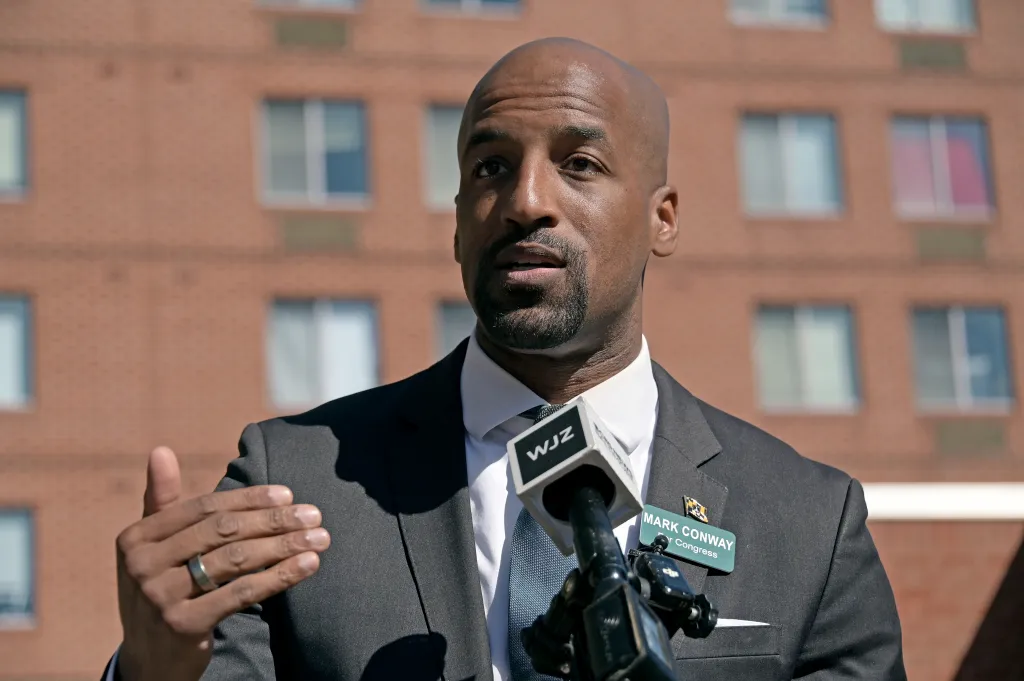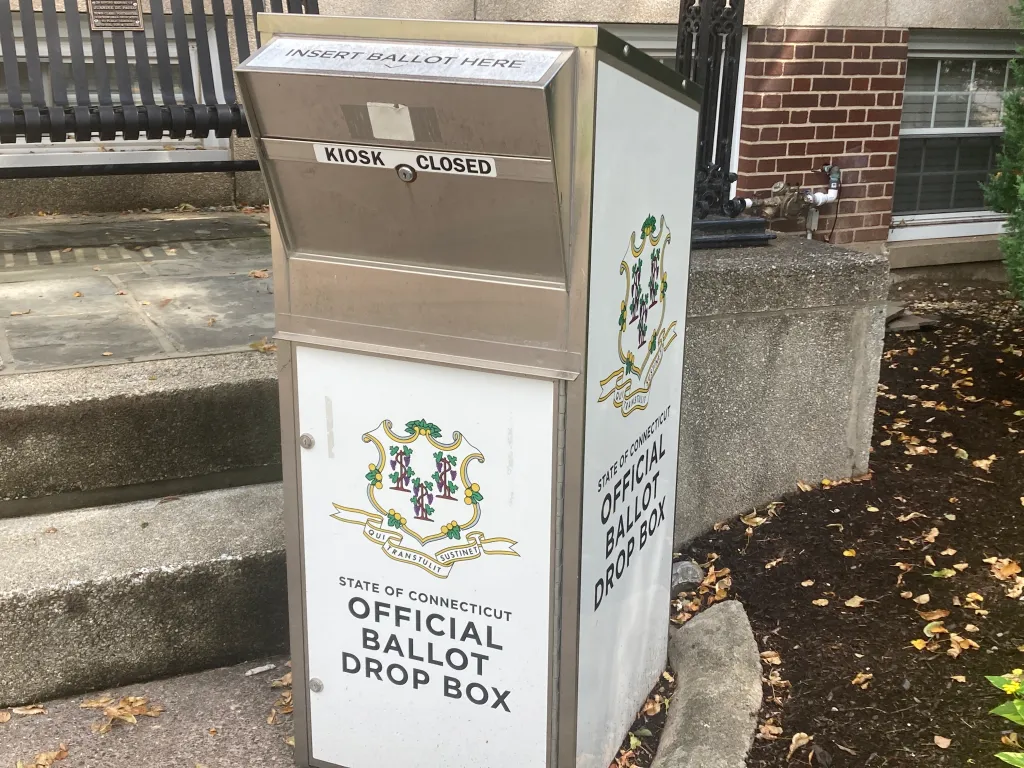Copyright Mechanicsburg Patriot News

Story by Katie Meyer of Spotlight PA Spotlight PA is an independent, nonpartisan, and nonprofit newsroom producing investigative and public-service journalism that holds power to account and drives positive change in Pennsylvania. Sign up for our free newsletters. HARRISBURG — Democrat Stella Tsai has won a seat on Pennsylvania’s Commonwealth Court, while Democrat Brandon P. Neuman secured a spot on Superior Court. Pennsylvania’s two intermediate appellate courts play critical roles in the state’s justice system, affirming or reversing decisions made in lower courts. Their decisions may be appealed to the state Supreme Court, which is the commonwealth’s court of last resort. Judges who sit on the Commonwealth and Superior Courts also frequently go on to serve on the high court. In the Commonwealth Court race, the Associated Press called the race for Tsai at 10:47 p.m. Unofficial results show Tsai with 55.4% of the vote to Republican Matthew Wolford’s 44.6%. For Superior Court, the AP called the race for Neuman at 10:48 p.m. Unofficial results show Neuman with 54.6% of the vote to Republican Maria Battista’s 43.4% and Liberal Party candidate Daniel Wassmer’s 2%. The two courts serve distinct roles within the commonwealth’s legal system. Commonwealth Court presides over civil actions brought by and against the Pennsylvania state government and hears appeals primarily in cases involving state departments and local governments. Its judges can help shape Pennsylvania’s laws on everything from elections to firearms. Superior Court handles criminal, family, and civil cases that are appealed by county Courts of Common Pleas, and its judges can help decide the outcomes of high-profile criminal cases. Judges on the courts serve initial ten-year terms after they are elected, then go up for yes-or-no retention votes to win subsequent ten-year terms. The Commonwealth Court race The nine-member Commonwealth Court is a routine first stop for high-profile cases. Notable recent rulings include a 2023 opinion that found the state’s education funding system violated the rights of parents and students in poorer school districts, and a 2024 decision that mail ballots shouldn’t be rejected for missing dates (the state Supreme Court later overturned that decision). In March 2025, the court decided a lawsuit brought by Spotlight PA, ruling that emails and other communications between Pennsylvania lawmakers and the lobbyists who try to influence them can remain hidden from the public. During her bid for the court, Tsai, who has served as a judge on Philadelphia’s Court of Common Pleas since 2016, noted on her campaign website that she has “volunteered to safeguard voting rights, immigrant rights, and civil rights.” While, like other judicial candidates, she avoids talking about how she’d rule on specific Commonwealth Court cases, she has nodded at her political values. In accepting a nomination from Planned Parenthood Pennsylvania Advocates, for instance, Tsai posted on Facebook, “We have seen in recent years that reproductive healthcare rights are often determined by the courts. I am incredibly proud to receive the support and endorsement of PP Pennsylvania Advocates in the race for Commonwealth Court!” She also highlighted endorsements from the Conservation Voters of Pennsylvania and the educators’ union PSEA-PACE. The state Democratic Committee endorsed her candidacy. The Pennsylvania Bar Association rated her as “highly recommended,” saying she has “a long and diverse legal career” with extensive trial experience in state and federal courts, and that she is respected among fellow judges and considered “enthusiastic, hard-working and fair.” Wolford, a solo practitioner based in Erie who specializes in environmental law, repeatedly stressed during his campaign that he would “not legislate from the bench,” and noted that he “is running for Judge of the Commonwealth Court because he is concerned about government over-regulation and overreach.” On his campaign website, he described his practice as focusing partially on “defending clients against government enforcement actions and helping clients work through complex regulatory challenges,” and partly on “fighting for private property rights,” which includes taking on disputes over zoning and easements, and with homeowners’ associations. Wolford was endorsed by the Pennsylvania Republican Party. The Pennsylvania Bar Association rated him as “highly recommended,” noting that he has been “litigating all aspects of environmental law,” both civilly and criminally and at trial and appellate levels, for almost four decades. He is “highly regarded for his work ethic, preparation, common sense, fairness, integrity, prompt and efficient performance and legal expertise in the environmental area,” the association wrote. According to their most recent campaign finance reports, Tsai had spent nearly $280,000 from her campaign account as of Oct. 20, and Wolford had spent a little over $540,000. These numbers include in-kind donations, which are spent on a candidate’s behalf in coordination with their campaign. The race saw far fewer independent expenditures (which come from outside groups not affiliated with the campaigns) than the state Supreme Court retention races have. However, Democratic groups did spend tens of thousands of dollars to promote the party’s entire slate of judicial candidates, including Tsai. The Superior Court race The primary role of the 15-member Superior Court is to review lower courts’ verdicts, and notable recent decisions include a 2019 opinion tossing out rapper Meek Mill’s conviction on drug and gun charges. As in Commonwealth Court, judges serve initial 10-year terms, then face nonpartisan retention votes, which usually succeed. In his bid for the court’s open seat, Neuman, of Washington County, promoted endorsements from unions like the Pennsylvania Laborers’ District Council, as well as from law enforcement groups that don’t always back Democrats — the Fraternal Order of Police, the State Troopers Association, and the Sheriffs’ Association. Neuman has served as a judge on the county’s Court of Common Pleas since 2018. He was also a member of the state House of Representatives from 2011 to 2017. Last year, he handed down a notable ruling that ordered Washington County to notify voters if their mail ballots had errors that would keep them from being counted, so that those voters would be able to cast provisional ballots. During his time in the legislature, one of Neuman’s biggest accomplishments was a successful 2015 law that sped up the processing of rape kits, which was aimed at addressing a major backlog Pennsylvania had at the time. Neuman was “highly recommended” by the Pennsylvania Bar Association, which said his “opinions demonstrate knowledge of substantive and procedural legal issues and the ability to provide good factual backgrounds and well-developed legal arguments.” The association added that Neuman’s colleagues believe he has high integrity, a good judicial temperament, and “treats all individuals fairly,” among other positive attributes. Battista, a Clarion County resident, previously served as assistant general counsel for the Pennsylvania Departments of Health and State under former Govs. Tom Corbett, a Republican, and Tom Wolf, a Democrat. She is currently president at Judge Government Services, a consulting firm. She ran unsuccessfully for Superior Court in 2023, during which she received the state Republican Party’s endorsement during her primary. This time around, the state party chose Ann Marie Wheatcraft, a Common Pleas judge from the Philadelphia suburbs, in its primary endorsement. After Wheatcraft lost the primary, the state party endorsed Battista. The Pennsylvania Bar Association did not recommend Battista because she did not participate in its rating process. As of Oct. 20, Neuman and Battista had spent about $505,000 and $120,000, respectively, from their campaign accounts. These numbers include in-kind donations. Neuman also benefited from some Democratic groups spending independently to promote the party’s entire slate of judicial candidates. BEFORE YOU GO… If you learned something from this article, pay it forward and contribute to Spotlight PA at spotlightpa.org/donate. Spotlight PA is funded by foundations and readers like you who are committed to accountability journalism that gets results.



